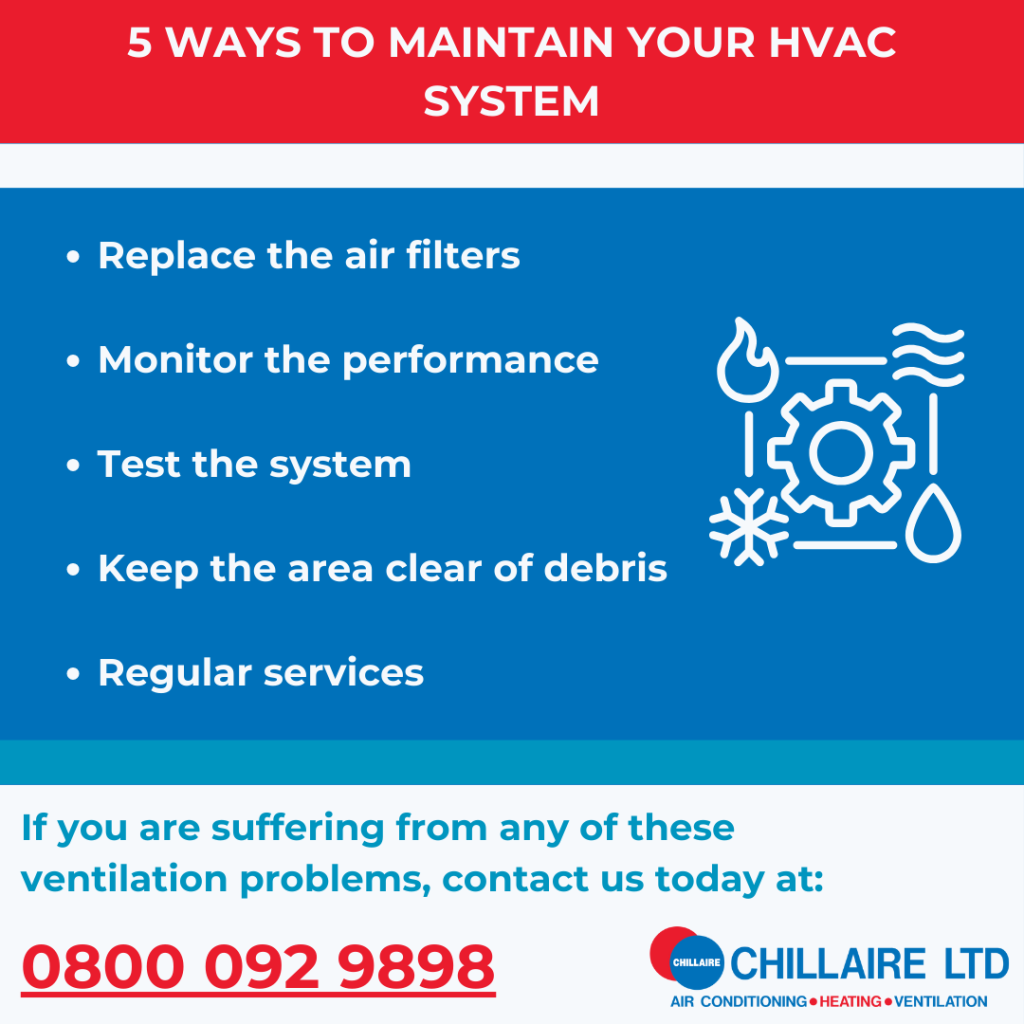
5 HVAC Maintenance Tips for any Commercial Building
Making sure your commercial HVAC maintenance is kept to a high standard is important. Not only does it ensure your system is running efficiently, it also helps keep energy costs down, saving you money in the long run. Here are 5 HVAC maintenance tips for your commercial building:
1) Clean or Replace the Air Filters
Air filters are an important part of your commercial HVAC system. The filters help clean the air that comes into your workplace.
If air filters aren’t regularly cleaned or replaced as part of your commercial HVAC maintenance, it can lead to poor circulation and system strain. The system will have to work harder to maintain the comfortable temperature and environmental conditions you require.
A dirty filter can cause:
– Poor airflow and quality of air
– More dust
– Higher energy bills
– Strain on the system leading to failure
Normally, changing the air filter on your commercial heating and cooling system is a simple task. It is advised to clean and replace air filters around every two to three months.
2) Monitor the Performance
Making sure the performance of your systems ability to heat, cool and ventilate is important. This helps any drops in efficiency that your system may have.
A room that feels stuffy, is a potential performance issue and should be fixed as soon as possible. Poorly ventilated areas can lead to low staff performance and health issues which can lead to sick leave and time off.
When monitoring the performance, does your commercial heating and cooling system:
– Heat or cool poorly
– Poor airflow
– Make a rattling noise when the system is on
– Have a strong smell coming from the unit
– Or leak or have water puddles?
3) Test the System
Running tests on your commercial heating and cooling system can ensure the system is running efficiently. You can do many different tests on your HVAC to make sure there aren’t any problems, such as thermostat testing or air flow testing
By comparing the reading on your thermostat and the thermometer connected to your HVAC unit, you can see if there are any differences. Even if it is only different by a degree, it is important to get this fixed.
A thermostat that isn’t reading correctly can cause the system to heat or cool your place before it is needed.
4) Keep the Area Clear of Debris
Making sure your system is clear from debris is an important job of commercial HVAC maintenance. Debris can clog heat exchangers, pipes and filters, reducing the efficiency of your system.
Your external unit is typically hidden and can become clogged with dirt and leaves, especially in the autumn and winter months. This leads to poor efficiency and higher energy bill and will cause strain on the system which can lead to component failure.
Signs your commercial heating and cooling system is clogged:
– Unpleasant odour
– Mould and mildew inside or outside your system
– Poor airflow
– Strange noise coming from the system
5) Regular Services
Whilst you can do some maintenance checks yourself, it is important to regularly service your commercial heating and cooling system. Getting a professional to do commercial HVAC service means that small problems can be caught early on.
As part of your commercial HVAC service, they might:
– Clean or replace air filters
– Check the control box, switches and wiring
– Test the safety controls
– Clean the duct system
– Clean the drip pan and evaporator coil
You can plan your commercial HVAC service and stay ahead of any problems that might happen. We offer preventative maintenance as well as a 24-hour breakdown service 7 days a week.
Contact us whether you are looking to install or maintain your HVAC; Chillaire has a friendly team happy to help.



